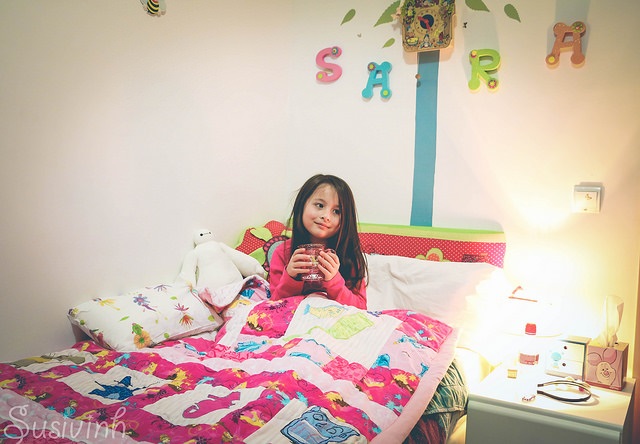
Children need sleep. And parents need their children to sleep. Without sleep, children do not function or develop as well as they could. Generally, children who do not get enough sleep tend to be more defiant, irritable and hyperactive. They can’t concentrate or focus as well, which can impact their learning. It can also affect their immune system resulting in them getting sick more often.
Your child may experience difficulty falling asleep because…
He is scared or anxious
She is hungry or thirsty
He is too excited or stimulated
He may be too hot or too cold
She can’t switch off her thoughts / worries
She does not want to sleep by herself
He is simply not tired
She needs to go to the toilet
He doesn’t know how or doesn’t want to
…and so on.
There are several things you can do to help…
- Routine! A regular routine is essential for bedtime. Dinner, bath/shower, and calm quiet play time (eg. drawing), family time or reading before bed. Ensure your child’s bed time is the same each night and wake her the same time each morning.
- Check the temperature of your child’s room and ask him if he is comfortable.
- Offer your child a small snack (no/minimal sugar) or a warm cup of milk during quiet time before bed. Children sometimes find it difficult to sleep with an empty tummy.
- Use a reward system to help motivate her. A star/sticker chart leading to a lucky dip, treat or special outing.
- No TV, computer or electronic devices in the bedroom or during quiet time before bed.
- Talk to him… find out if he scared or anxious about something that might be keeping him awake. Acknowledge his feelings and try to ease his fears. Using a night light or magic/monster spray might help.
- Ensure your child is spending some daytime in natural sunlight outdoors. Sunlight is important for your body to produce melatonin and to help regulate your body clock.
- Teach her how to relax using breathing techniques or visualisations.
- Make bedtime a little later. As your child gets older, he may need less sleep. Putting your child to bed too early can be frustrating for him and you, as he will not be able to fall asleep.
Typically, sleep problems are just part of being a kid and child development but there may be other reasons your child is having difficulty going to sleep at night. You may wish to contact your doctor to rule out any medical conditions associated with sleep difficulties.
Changes can also interfere with sleep, such as changing beds, bedrooms, starting school, moving house, holidays, and so on. And sometimes there is no reason… We all have some challenging nights with our kids at bedtime!
If your child has behavioural problems, sleeping well is extremely important to assist with management of the behaviour. If you practice these tips and still have no success, you may wish to contact us for an appointment for support and advice on 8361 7008.
Rachel Ielasi
Psychologist
Subscribe to our newsletter Attuned Life
Would you be interested in receiving our occasional newsletter, event information and other useful tips via e-mail?

